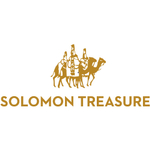Extremely Fine Italian Baroque Ebonized Wood, Faux Ivory, and Hardstone Cabinet
Lot 146
About Seller
Solomon Treasure
1050 2nd Ave #83
NY, NY 10022
United States
Four Generations of collecting exquisite European Art & Antiques.
Categories
About Auction
By Solomon Treasure
Jun 25, 2021 - Jul 25, 2021
Set Reminder
2021-06-25 00:00:00
2021-07-25 00:00:00
America/New_York
Bidsquare
Bidsquare : The Exceptional Summer Sale
https://www.bidsquare.com/auctions/solomon-treasure/the-exceptional-summer-sale-7151
The Exceptional Summer Sale - No Buyers Premium! Solomon Treasure mory@solomontreasureny.com
The Exceptional Summer Sale - No Buyers Premium! Solomon Treasure mory@solomontreasureny.com
- Lot Description
Extremely fine Italian Baroque ebonized wood, faux ivory, and hardstone cabinet, Florence, 20th century. Decorated overall with Berainesque (light arabesques and playful grotesques) motifs including rinceaux, putti and mythical birds, and inlaid with various semi-precious stones including lapus lazuli, porphyry, various agates and marbles, the superstructure with domed pediment, the sides decorated with geometric stringing. Very grand cabinet and one of a kind. Please note: We have another cabinet to make a pair. Provenance: Private Castle in Dallas Texas, USA. Purchased in New York in the late 1970s. Measures: 91" high x 68" wide x 20" deep. Comes with keys. Good condition. Normal wear, cracks consistent with age use. Presents well and looks amazing in real life! The present cabinet, featuring an abundance of semi-precious stones amongst stylized faux ivory-inlaid foliage, is inspired by the luxurious inlaid furniture of the Italian High Renaissance. Promoted amongst craftsmen such as Pietro Bertinetti, who often reinterpreted or combined the forms and motifs of both Classical and Renaissance art, the fashion for certosa-style inlay flourished from the mid-nineteenth century. Whilst the quality of construction and execution of the inlay suggests a Florentine origin, the decorative language of the cabinet, with its Cinquecento rinceaux scrolls, amorini and cameos, is modelled on the North Italian workshops. Featuring an eclectic combination of various decorative elements in keeping with the Renaissance Revival, the cabinet‰ЫЎ_З____С____У____У_s inlay is quite comparable with the work of subsequent exponents of this technique, such as Giovanni Battista Gatti and Ferdinando Pogliani. In particular, the presence of porphyry and lapis lazuli recalls the work of Gatti, who was renowned for his skill incorporating semi-precious stones and marbles against an ebony ground. A related cabinet is recorded in C. Payne, European Furniture of the 19th Century, Woodbridge, 1981, p. 293.
- Shipping Info
-
Local Pick-Up, In-House Shipping
-
- Payment & Auction Policies
-
Available payment options
-



 EUR
EUR CAD
CAD AUD
AUD GBP
GBP MXN
MXN HKD
HKD CNY
CNY MYR
MYR SEK
SEK SGD
SGD CHF
CHF THB
THB






























